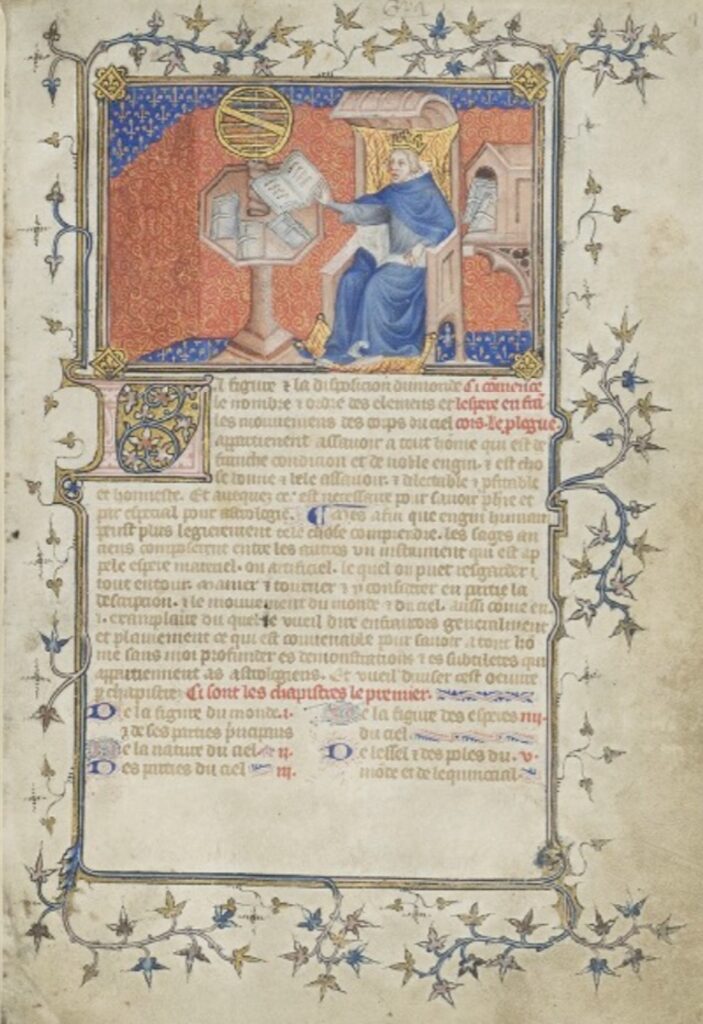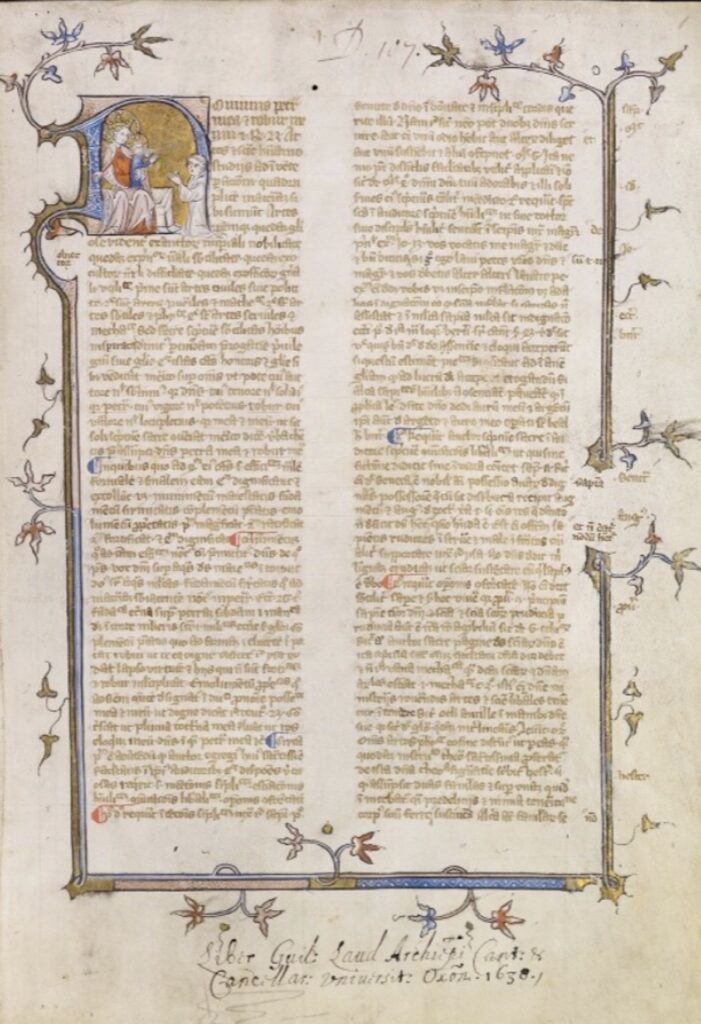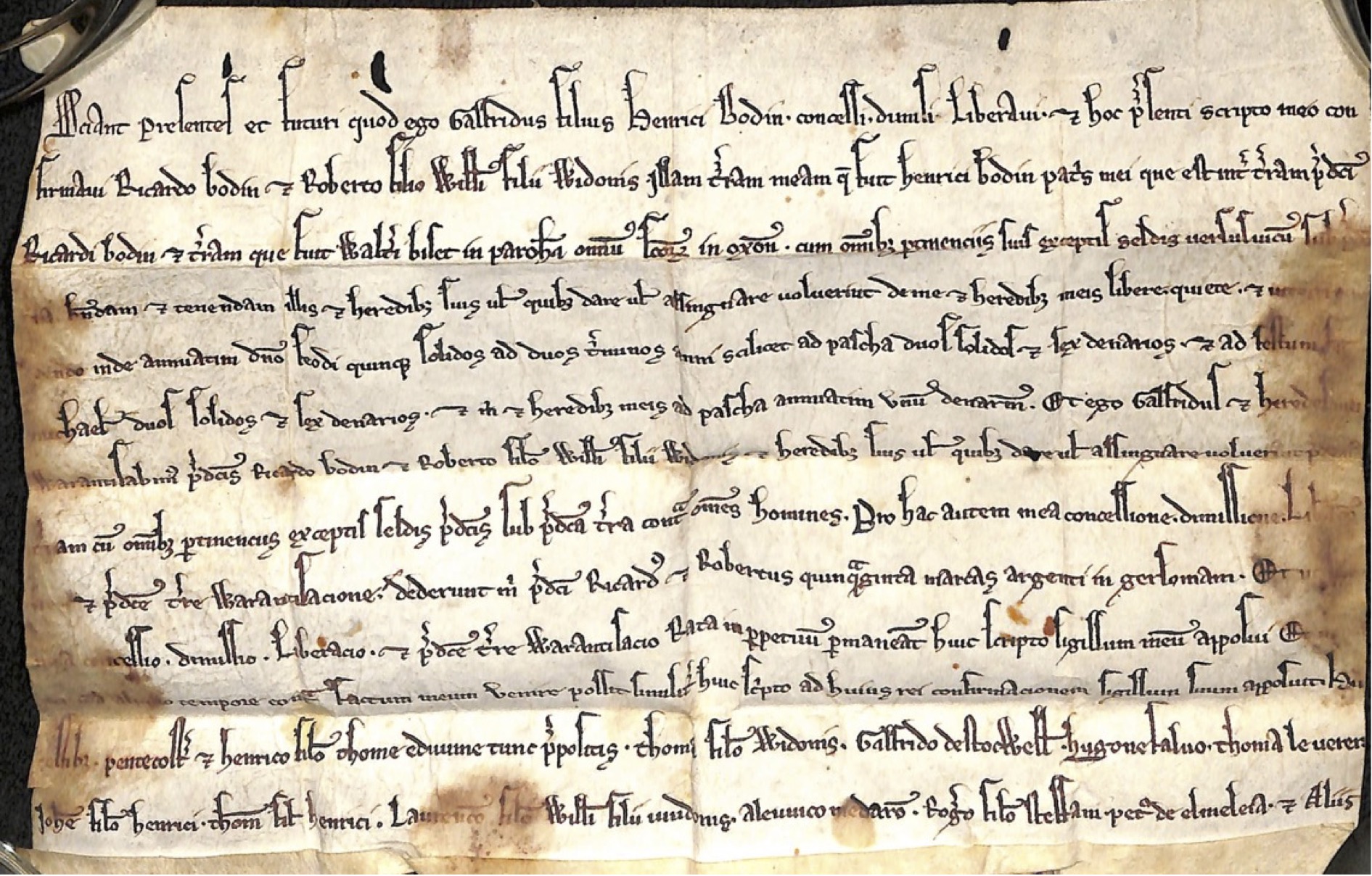There are a number of palaeography offers available for anybody interested in Oxford happening in Michaelmas 2025, coordinated by Dr Laure Miolo, Lyell Career Development Fellow in Latin Palaeography and Dilts Fellow at Lincoln College, historian of late medieval Europe, specialising in manuscript studies and history of early libraries with a special focus on scientific books and practices. Contact her for any of the below under laure.miolo@history.ox.ac.uk.
Header Image: Lincoln College/EL/OAS/D1
- French Palaeography Manuscript Reading Group, Mo 10.30-12
- Exploring Medieval Oxford through Lincoln & Magdalen Archives, Fr 2-3pm
- Latin Palaeography Manuscript Reading Group, Tue 2-3.30pm
1. French Palaeography Manuscript Reading Group
This group is open to anyone with an interest in Old French, Middle French and Anglo-Norman manuscripts. We study and read manuscripts from the 12th century to the 16th century with a special focus on palaeography. We meet every Monday between 10.30am-12pm in the Weston Library.
If you are interested in joining the group or would like more information, please write to Laure Miolo.
The seminar comprises brief lectures on the morphology and function of scripts, as well as the evolution of script shapes and graphic systems in context, followed by transcription practice using original manuscripts and documents. Sessions are structured around the historical development of scripts, progressing from simpler shapes and strokes with minimal ligatures and abbreviations to more cursive and complex forms. A study of the diverse scripts found between the twelfth and early sixteenth centuries in manuscripts and documents written in Old French, Middle French, and Anglo-Norman — and produced in various geographical areas —will allow participants to gain familiarity with a wide range of scripts and abbreviations. The reading of literary texts in parallel with the analysis of manuscripts and their scripts serves to complement both the lectures and transcription practice.

2. Exploring Medieval Oxford through Surviving Archives
Every Friday 2-3pm Weston Library (Horton Room)
This weekly one-hour seminar offers participants the opportunity to work directly with original documents from various Oxford parishes, held in the Bodleian Libraries. Focusing primarily on thirteenth-century deeds, these documents provide rich insight into everyday life in medieval Oxford. Open to undergraduates, postgraduates, and early career researchers, the seminar welcomes all those interested in working with primary sources and conducting in-depth contextual analysis of historical records
Working individually or in pairs on a self-selected original document, participants will closely examine its physical and material features (such as writing surface, layout, and signs of use), carry out transcription and translation, and identify the individuals and locations mentioned in order to situate the document within its historical context. Particular emphasis will be placed on the seals attached to the documents.
Alongside collaborative work on these unpublished or little-studied sources, participants will gain experience in the digitisation and cataloguing of archival materials, and will have the opportunity to present their research and original documents to a wider audience during a one-day workshop in Trinity Term.
This seminar is held at the Weston Library (Horton Room) in collaboration with Matthew Holford, Tolkien Curator of Medieval Manuscripts. Those who are interested can contact the convenor, Laure Miolo via email: laure.miolo@history.ox.ac.uk. Those who are interested can contact the convenor, Laure Miolo
3. Latin Palaeography Manuscript Reading Group
(advanced beginner, intermediate and advanced levels)
For those wishing to develop, deepen or maintain their skills in Latin palaeography, we meet every Tuesday between 2pm and 3.30pm in the Weston Library (Horton Room or Visiting Scholars Centre). We explore a wide variety of medieval manuscripts and documents dating from the 9th to the 15th centuries. Each session combines hands-on analysis of different scripts, abbreviations, and codicological features. Regular practice is key to building palaeographical skills and gaining confidence in reading a range of scripts, from clear book and documentary hands to more cursive and heavily abbreviated ones. This reading group is designed to introduce the essential features of each script and abbreviation, enabling participants to read and interpret manuscripts directly and with confidence. Those who are interested can contact the convenor, Laure Miolo

